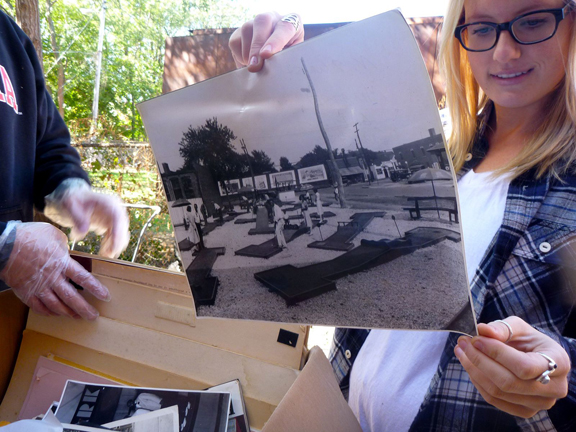
UNL historians are inviting the public to join them in Omaha to uncover new insights into the past, specifically those that tell the story of African-Americans in North Omaha and across the country.
The UNL Department of History, in partnership with Nebraska Educational Telecommunications, the Great Plains Black History Museum and the Malcolm X Foundation, will host "History Harvest" from 10 a.m. to 2 p.m. on Oct. 22 at Love's Jazz and Art Center, 2510 N. 24th St. The public is invited to bring in old photographs, letters, memorabilia and other items related to African-American history to learn more about them and how such artifacts connect to the broader national narrative of American history.
Historians won't keep any of the artifacts, but with permission they will photograph or scan items to add to a Web-based digital archive that will be opened to the public. NET also will create television and radio programming from some of the day's events.
"History Harvest" grew out of the idea that Nebraska is more diverse and its history is more complex than it's usually given credit for, said Patrick Jones, associate professor of history and ethnic studies.
"The keepers of a lot of that history are ordinary people, either in the stories they have to tell, or in the things that they keep from their past," he said.
Previous "History Harvest" events were held in Nebraska City and Lincoln, with the latter focusing on the state's storied railroad past.
Jones said he's hopeful the upcoming event will amount to a celebration of African-American history that contributes to the ongoing revitalization of North Omaha.
"I think this history, with its emphasis on community-building, achievement and culture, is transformative, particularly for young people," Jones said. "It provides a powerful counter-narrative to the dominant public story about African-Americans in North Omaha, which too often emphasizes violence and social break-down."
— Jean Ortiz Jones, University Communications